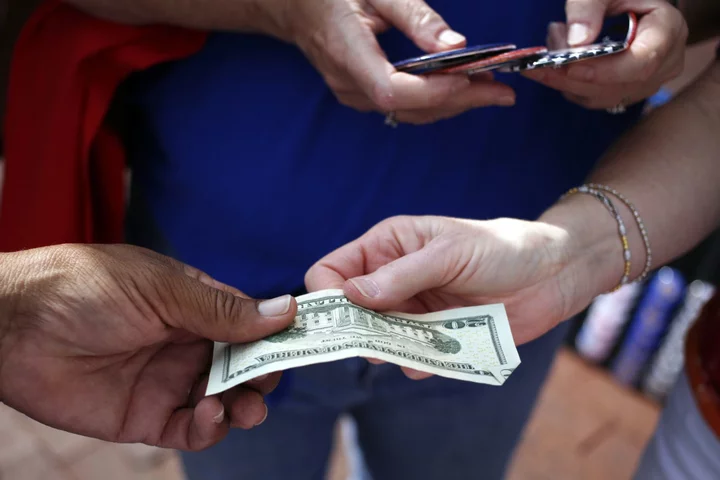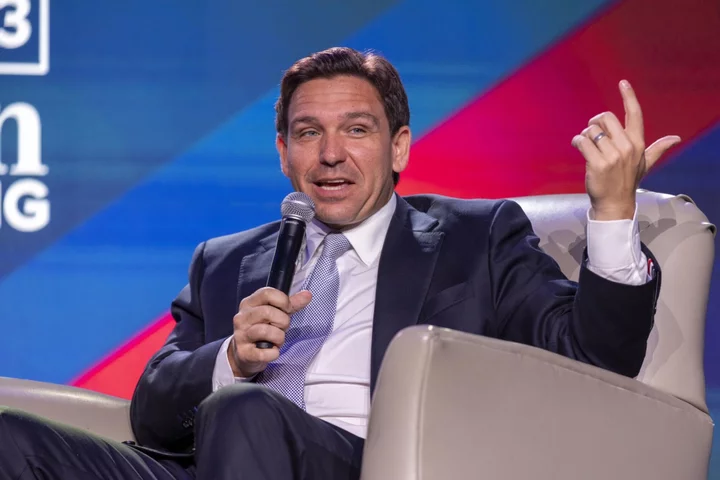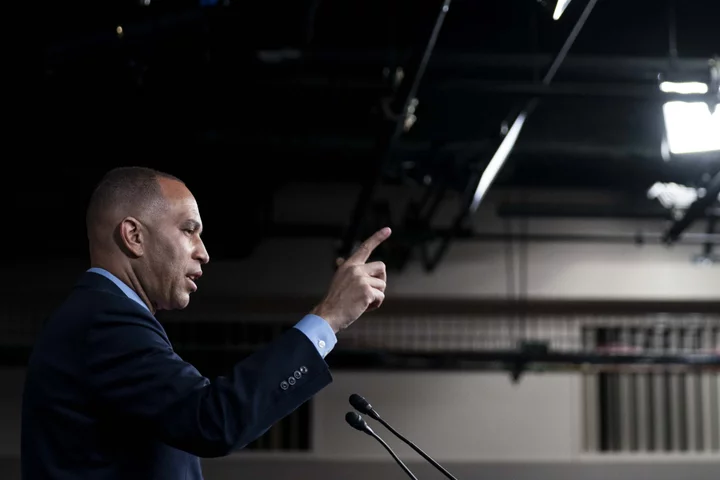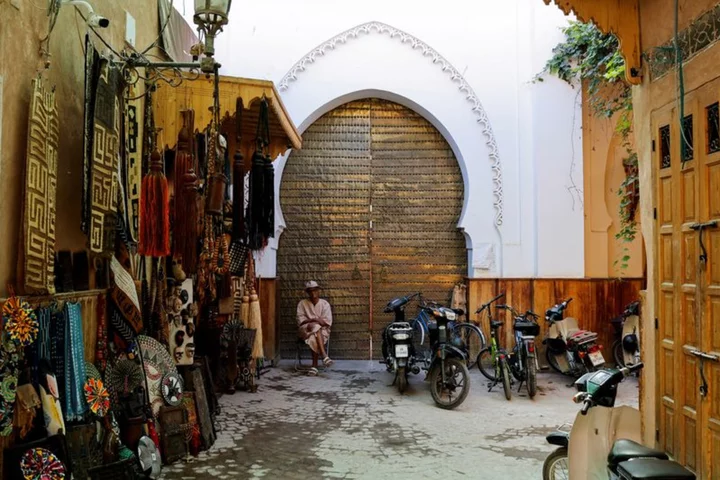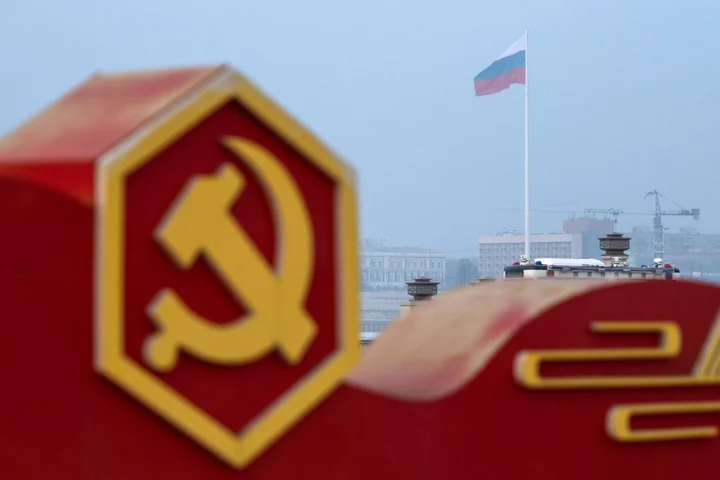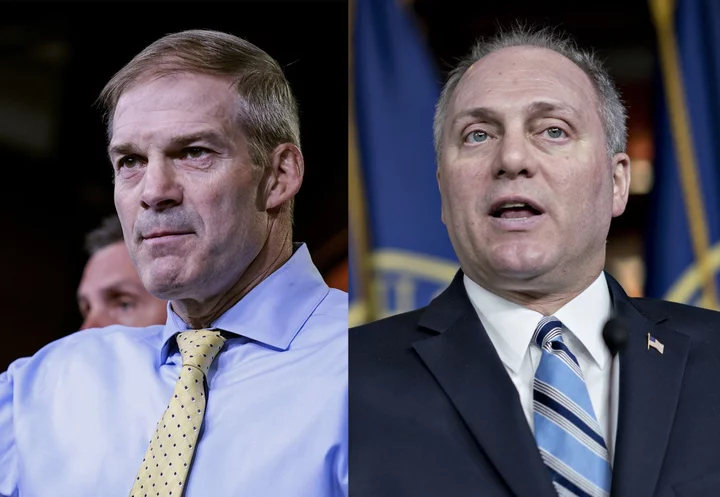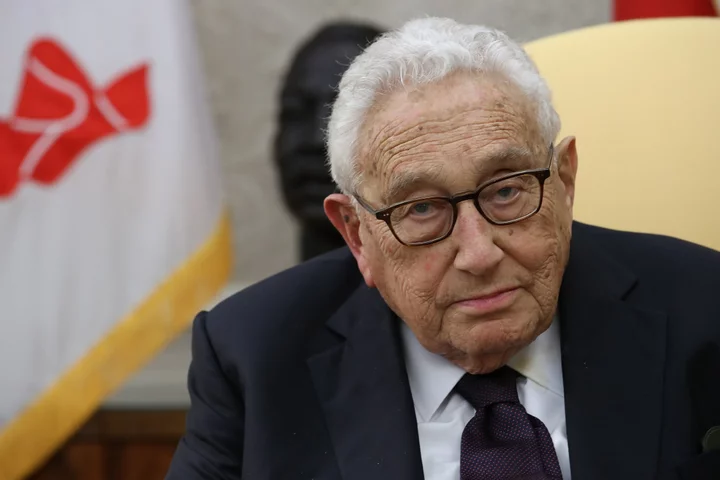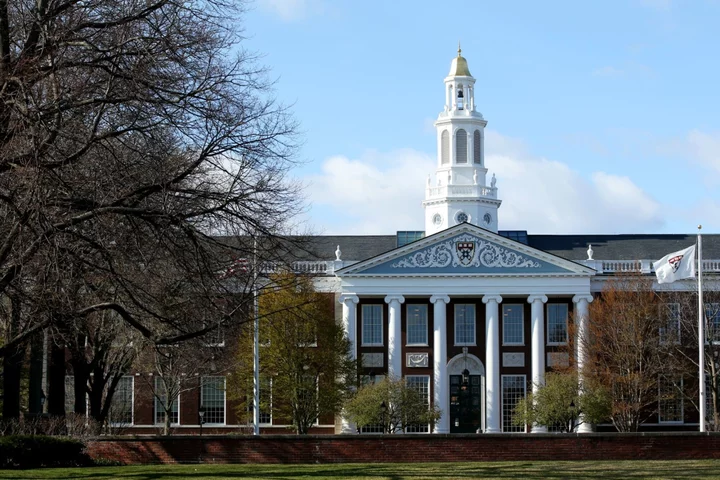The political fundraising appeal has been completely reversed: Some long-shot Republican presidential candidates will now give you money.
Doug Burgum is offering a $20 gift card for a $1 donation. Francis Suarez’s super PAC will pay up to $15,000 in college tuition sweepstakes for a lucky donor. Vivek Ramaswamy will return 10% of contributions to those who raise money for his campaign.
These lesser-known Republican presidential hopefuls are going to great lengths to gin up enough donors — and name recognition — so that they can participate in the first GOP debate on Aug. 23 in Milwaukee. To qualify, they must have a minimum of 40,000 unique donors and to achieve at least 1% support in national polls two days before the event.
That’s causing several campaigns to go to the extreme in what are purportedly efforts to raise money for the primary fight. Indeed, the biggest beneficiaries may not be the candidates, but cash-strapped college students and other people with some time to spare who are eager to make a few bucks from these get-money-quick schemes.
“We are in gimmick season right now,” said David Karpf, an associate professor at George Washington University. “The job of any outsider in a campaign is to try a bunch of stuff in the hopes that they get any traction at all.”
Ramaswamy is getting 3.1% support nationally, according to RealClearPolitics’s average of polls. Burgum is registering at 0.1%, and Suarez doesn’t even make the list.
“Not making the first GOP debate is a death sentence for any campaign,” said Matt Moore, state chairman of the Opportunity Matters Fund, a super PAC backing presidential candidate Senator Tim Scott.
These creative fundraising ploys may not achieve what the debate organizers at the Republican National Committee envisioned when they instituted the donor requirements. People who are only willing to donate in exchange for a kickback aren’t likely to be converted into regular campaign supporters that the national party needs.
Former Arkansas Governor and GOP presidential candidate Asa Hutchinson hasn’t ruled out using hokey fundraising ideas to fulfill the “silly” debate requirements, he said in a CNN interview Friday.
“They’re telling campaigns you’ve got to reach to these limits to make sure you get 40,000 donors,” Hutchinson said. “You can do that by your rhetoric and get people fired up, you can do it by gimmicks.”
Burgum, a wealthy businessman who is currently serving as the governor of North Dakota, is offering the best return: $20 Visa or Mastercard gift cards to the first 50,000 people who donate as little as $1. Nearly 20,000 people have taken their offer, his campaign said.
Tech entrepreneur Ramaswamy is requiring a little more upfront work. Applicants who pass background checks can become freelance fundraisers and can keep 10% of the contributions they help generate.
The super PAC allied with Suarez, the mayor of Miami, is seeking to appeal to college students. For $1 to Suarez’s campaign, they enter a sweepstakes for a free year of college tuition — up to $15,000. (Technically, the rules allow participants to bypass the donation and just agree to receive communications from Suarez’s team to enter).
Suarez’s campaign has also announced a raffle for front row tickets to see soccer player Lionel Messi’s first game with Inter Miami CF later this month. The Miami mayor says his campaign is working on more promotions.
“On one hand, this is American capitalism at its best,” said Lori Cox Han, a professor who directs the presidential studies program at Chapman University. “On the other hand, this is falling short of the democratic norms we aspire to. It’s funny and sad at the same time.”
The idea of offering incentives to supporters isn’t new, but it’s more prevalent this primary season than others in recent memory. For his 2008 run for president, Mitt Romney created a program for college students to get 10% of the money they raise for the campaign beyond the first $1,000. Romney didn’t get the Republican nomination that year.
Now a senator from Utah, Romney didn’t replicate that strategy in his next presidential bid. He ended up winning the primary to lose to Barack Obama in the 2012 general election.
--With assistance from Michael Smith and Ryan Teague Beckwith.

